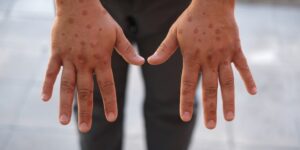Philippines
Over 7,000 islands make up the Southeast Asian country of the Philippines in the Western Pacific. The capital, Manila, is known for its ancient Chinatown and the waterfront promenade. Old Manila houses a walled city from colonial times, Intramuros, as well as Fort Santiago and the baroque San Agustin Church. There are also Spanish influences here, a legacy from 300 years of Spanish rule before independence was claimed in 1898, including on religion; the Philippines is Asia’s largest catholic country.
Make an online bookingTravel Health Information
Highly recommended
vaccinations for travelling here
Advisory
vaccinations for travelling here
The Philippines is an area which is at extreme risk from terrorist attacks and other violent crime. Visitors to the north of the country should follow government travel advice, and avoid all travel to western and central Mindanao and the Sulu archipelago to the south. There is currently a ‘state of national emergency on account of lawless violence’ in place across large areas of Mindanao, the southernmost group of islands, while other areas are now under martial law with strict curfews imposed.
Crime and violence aside, there are several other factors that visitors to the Phillipines should bear in mind in order to have a safe and incident-free trip. The Philippines is in an earthquake zone, and also commonly experiences volcanic eruptions and typhoons. Check your specific destination for local advice and travel warnings, as well as information about what to do if you’re in an area experiencing a seismic event.
The Philippines has been classified as having a risk of Zika virus, which causes birth defects and has no vaccine. Take steps to prevent mosquito bites. If you are pregnant or planning to become pregnant you should not visit the Philippines. Medical care in the country is reasonable in major cities, but can be difficult to access in rural areas, and standards of care may be poor.

Your nearest CityDoc clinic
Find a clinic

Destination Information for Philippines
Some of the most popular attractions of the Philippines are in, or related to, the sea, given the island nature of the country. With world-class diving and surfing, many tourists come for the pristine reefs, immaculate beaches and incredible marine life. Inland, there are jungles, mountains and caves to explore, with natural hot springs thanks to the live volcanoes. There are many cities across the 7,000 islands of the Philippines. As well as Manila, important centres include Cebu, a major site for commerce, industry and tourism, and Davao, one of the largest cities in the world in terms of physical area, and the home of the Philippines’ tallest mountain, Mount Apo.
From stunning beaches to whale watching and water-sports, there’s something for everyone in the Philippines, whether you’re a true explorer hoping to experience a new culture and way of life, or you’re simply looking for a beautiful place to relax and unwind.
When enjoying this diverse nation, you should make sure you have already been administered with the appropriate vaccines. It is recommended that all visitors to the Philippines receive the hepatitis A and typhoid vaccines, along with the tetanus, diphtheria and polio vaccine. Other considerations must be given to Rabies, Hepatitis B and Japanese encephalitis.
Infections and Outbreaks frequently change from country to country and by attending our clinics you will be given the most up to date clinical and safety advice from our team of specialists. Our advice to you often includes aspects such as:
- Food and water hygiene
- Insect and animal bite avoidances
- Personal safety
- Sexually transmitted infections
- Sun protection
- Altitude sickness
Travel news
Helpful travel news, tips and advice for travelling around the world

Chikungunya: What Travellers Need to Know About the Disease and Vaccines
As global travel increases, so too does the risk of encountering mosquito-borne infections like Chikungunya. Here's what you need to know about current outbreaks, how the disease spreads, and the vaccines available to help protect you.

Water Hygiene While Travelling: What You Need to Know
Get the facts straight: Common myths about water hygiene while travelling debunked here.

Mpox- How dangerous is it?
With the recent WHO announcement regarding the outbreak of Mpox in Africa there has been a concern of its transmission to other countries.
For the latest government travel advice
For anyone planning to travel abroad we recommend visiting the following government website for all the latest travel guidance and advice.
Travel health enquiries
For all travel health enquiries, simply contact us below.



